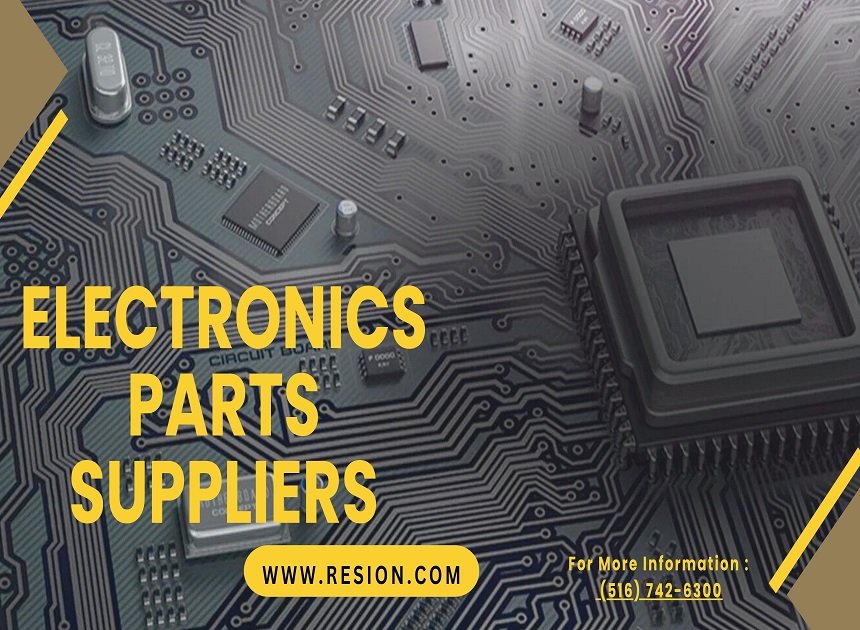While searching for electronic components, you will encounter many small and large suppliers. But how can you figure out which one is better? Each supplier you meet will be partnering with a different type of brand and offering different types of services.
Now, if you don’t want to miss out on choosing the best electronics parts suppliers, here is a guide that will help you out. Make sure to follow all the steps below to avoid any pitfalls in your sourcing journey.
Steps to Find the Best Electronics Parts Suppliers
With plenty of suppliers offering routine electronic components, you will require a strategic plan to get specialized parts, so follow the steps highlighted below:
1. Check Nationwide Recognition
Suppliers with nationwide networks can ensure constant product availability, and their logistics are efficient. National recognition usually signals a history of dependability and compliance with country standards, which can be critical for interstate businesses.
Additionally, such vendors will be more likely to possess experience with different regulatory regimes, guaranteeing more efficient transactions and compliance. Their large-scale operations also have the potential to provide economies of scale, possibly resulting in more favorable pricing.
2. Proper Certifications or Memberships
Industry membership and certifications are a gauge of a supplier’s dedication to ethical business practices and quality. Industry memberships, including the Electronic Components Industry Association (ECIA) or the Independent Distributors of Electronics Association (IDEA), can also confirm a supplier’s legitimacy. These associations tend to involve working in accordance with very strict standards and periodic audits, all of which add an extra guarantee about the authenticity and quality of the parts supplied.
3. Ask About Their Quality Inspection Process
The largest electronic component distributor will have a robust quality inspection process for checking their components. It is vital to ensure the reliability of electronic components. Inquire about the supplier’s inspection protocols, including whether they conduct visual inspections, functional testing, and authenticity verification.
Suppliers should have procedures to detect counterfeit parts, such as using advanced equipment for microscopic analysis or X-ray inspections. Understanding their quality control measures can help you assess the risk of receiving substandard or counterfeit components, which can lead to product failures and reputational damage.
4. Check Out Their Facilities and Equipment
Virtually visiting or visiting a supplier’s premises can give clues to their capacity for operation. Cleanly maintained warehouses with proper inventory management show good supply chain management. High-end testing and handling equipment for components implies that quality control is assured.
In addition, premises that are compliant with safety and hygiene regulations minimize the risk of component contamination or damage. Evaluating these dimensions can assist in establishing whether the supplier will be able to deliver your volume demands and produce consistent product quality.
5. Ensure that Employees Are Aware Of the Business
The supplier’s personnel knowledge and expertise are important factors in the purchasing process. Interact with their technical and sales staff to understand their familiarity with the products and market trends. Staff members who can offer specific information regarding components, recommend alternatives, and provide technical assistance enhance the value of the partnership. Their expertise can enable smoother transactions, faster problem resolution, and closer matching of your particular requirements.
6. Confirm That All Security Measures Are in Place
Security measures are essential to protect both physical inventory and sensitive data. Make sure that the supplier has adequate measures in place to prevent unauthorized personnel from accessing their premises and computer networks.
This is in the form of CCTV cameras to monitor the premises and secure storage of inventory and other products, as well as in encrypting data transmission and employing secure payment gateways. The fact that a supplier declares his security means he is devoted to ensuring the security of the client, as well as the security of the supply chain.
7. Check Whether or Not They Provide Market Intelligence
It can also be useful to include market intelligence as one of the strategic supplies that can be useful in planning. A source of information regarding the availability of the components, their prices, and new technologies is crucial to a good decision. Suppliers who are well aware of the industry can provide guidance that extends beyond transactional interactions, contributing to your business’s long-term success.
What Benefits Do Renowned Electronics Parts Suppliers Bring?
Partnering with reputable electronics parts suppliers offers numerous advantages:
- Competitive Pricing: Their buying power and established relationships with manufacturers can result in cost savings, which benefit your bottom line.
- Risk Reduction: With strong systems in place for quality control and compliance, these suppliers reduce risks related to supply chain disruptions and regulatory non-compliance.
- Reliability: Experienced suppliers have a reputation for consistent performance, guaranteeing timely delivery and reliable service.
- Quality Assurance: Well-known suppliers maintain high standards of quality, minimizing the possibility of receiving defective or counterfeit components.
- Comprehensive Support: They tend to offer complete customer support, such as technical support and after-sales support, improving the overall procurement process.
- Access to a Wide Product Range: Established suppliers usually have a broad range of components, making it easier to source and allowing one-stop shopping.
Conclusion
A strategic and informed approach is required to find the best electronics parts suppliers, especially when dealing with the open market. Evaluating factors like inspection processes, operational standards, and the global presence of a supplier is enough to provide you with an idea about who you are dealing with.
Choose a partner who can help you minimize the risks, reduce costs, and strengthen your supply chain. Make your decision wisely and invest in quality.

Leave a Reply